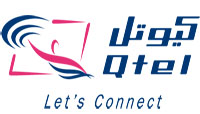When my mobile received a Qtel (Qatar Telecom) message, I didn’t think that it can make so much impact in my attitude. I have had many messages since I have become a Qtel customer since last twenty months, but this one was very different.
Normally, I do not pay much attention to these messages which are meant for special offers and promotions. But the particular message had a variety. That variety excited me, it was an eye opener. “Easy help with translation between English and Arabic with Qtel’s Mozaic Tarjim!”, the message red. 
Customers can SMS Arabic or English word / words to 2422 and receive a translation immediately, it continued. Message was an invitation to a free trial for two weeks. During the lunch break, I tried certain familiar words in English, out of my curiosity, to get it translated into Arabic.
Good Morning (Saba Alkaibar)
How are you? (Kaifa Halook)
What is your name? (Ma Ismook)
Please (Min Fadilak)
Excuse Me (Ann Eazinak)
Everyone should have atleast these essential words in their vocabulary to manage day to day affairs while in Arabic speaking regions. The above words can be a good start for a wider knowledge. I can neither read nor write in Arabic though at the moment I am at the height of glory, being able to use the above words, at least!
I don’t know the difference between classic Arabic and Modern standard Arabic. But the satisfaction out of learning a few words did not stop me. As soon as I got the English translated to Arabic words, I approached my Keralite colleague to find out more on how the words are spelt and red. He had his good basic knowledge in Arabic. He was also sending SMS for refreshing his Arabic knowledge.
I told him to try an Arabic word, ‘Habeebi’ to get it translated. I heard that word in a Malayalam film song that was pictured in the Gulf. Within no time the reply came as ‘sweetheart’, lover, love, darling, and honey. At that moment I thought how illiterate I am in this Arabic speaking nation.
In my working environment, Arabic is not mandatory because most of the staffs are Indians, Japanese, French, Americans, British, Filipinos, and Romanians. English is the common language among all these nationalities. I know the meaning of few French and Japanese words than Arabic. The absence of native speakers in our office may be the main reason for being ignorant in this great language. But that is not an excuse for not learning Arabic.
Expatriates stay away from their home and spend their lion share of lifetime here as their second home. This makes it an excellent idea to learn Arabic without considering it as an alien or unnecessary language.
French people greet ‘bonjour’ between one another in the morning. That is how I learnt the word for “good morning” in French. ‘bonne journée’ is a word for ‘have a good day’. We do not greet like this. Still for a curiosity, I learned this from my French friend. We need not say ‘bonne chance’ for ‘good luck’ and ‘bonne route’ for ‘have a good journey’. Yet it is a idea to try and remember these words.
Qtel message made me feel a sense of pain, that of an illiterate. I could realize the value of each and every letters, words, and much more during the ‘total literacy’ campaign in Kerala, my home state.
I had been an instructor and co-coordinator of total literacy program, post literacy program and continuing education for neo – literates. I remember the brightening eyes and pleasant faces of learners, in their late fifties and sixties, while they learnt an alphabet in the total literacy class. Most of them had written their own names first time during those days.
How interesting it is to know the difference of languages. Some languages are relatively easy to learn. I feel I can learn a French word, without much pain. But I have to drink at least one glass of water before saying, ‘kokoro kara anata o aishite imasu’ a sentence for ‘I love you very much’ in Japanese. But when we hear Doomo’ in Japanese or ‘Shukran’ in Arabic or ‘Merci’ in French for ‘thanks’, we can’t feel any difficulty.
Learning one or more words every day would help learn a new language. Qtel’s small step is a big leap to popularize the Semitic language. To learn Arabic is not simple, especially it’s alphabetic. I think, learning at least few words in Arabic, the language of Holy Quran, being the sixth among world languages with an estimated 186 million native speakers, is not a small achievement.
The message of Qtel was something special, innovative, creative, and influential than any other offers. Words are most powerful ingredient of a cultured society. It can change a lot in human mind. Words can inspire music and musicians. Words can inspire revolutions, love, and open a world of thoughts and knowledge. Shukran, Qtel!!!


